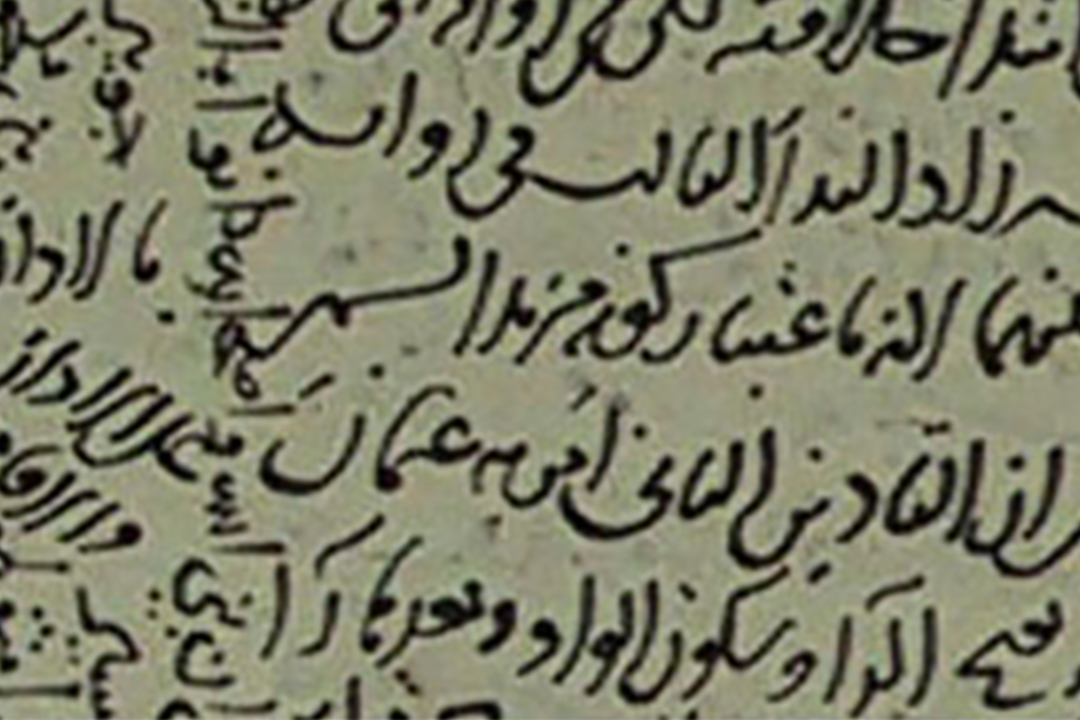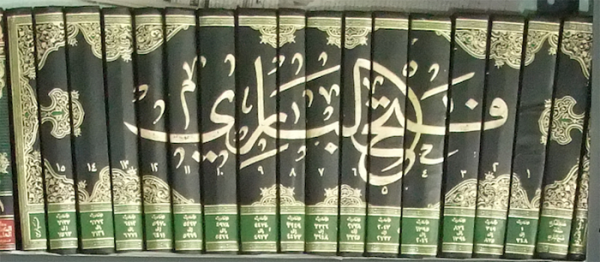Two previously unknown versions of “Fath al-Bari,” a classic work that shaped the way Sunni Muslims understand Muhammad’s sayings and practices, were discovered by Joel Blecher, assistant professor of history. These preliminary versions, which date to the early 15th century, shed light on the considerations and rivalries that affected revisions of the book, which would not be completed until 1438.
Blecher visited Istanbul’s Suleymaniye Library in 2014 to examine a database of digitized manuscripts that can only be accessed in person. Blecher was originally studying how medieval Muslims interpreted Muhammad’s sayings and practices—called hadith—when he made his discovery. The uncovered manuscripts reveal how medieval Islamic scholars drafted and revised their understanding of Muhammad’s teachings to the early Muslim community.
After examining several hundred digitized manuscripts of medieval commentaries, Blecher found a copy of “Fath al-Bari” that contained a partial dictation of the work dated to 1419—20 years before the previously believed completion of the documents. The copyist of the manuscript claimed the work had been dictated to him by the author of “Fath al-Bari” himself, Ibn Hajar al-‘Asqalani, one of the most influential Muslim judges of his time. The manuscript’s copyist was a scribe for a high-ranking minister from the sultan’s army and likely copied down this early version for his personal use. A later anonymous scholar marked up, crossed out and updated sections of the manuscript in the margins as the work was revised.
“These early versions contain significant differences from the printed versions found in academic libraries, madrasas and Islamic bookstores across the world,” Blecher said. “They also teach us broader lessons about how medieval Islamic thinkers crafted and revised their understanding of Muhammad’s sayings and practices over long periods of time.”
For contemporary Sunni Muslims, “Fath al-Bari” is often looked to as a reference on matters of Islamic law, theology, history and the Quran. The text is invoked in many religious debates today by a range of Sunni voices, from mainstream and establishment clerics to propaganda of extreme groups like the Islamic State. The multi-volume work contains the author’s commentary on an authoritative collection of hadith called “Sahih al-Bukhari.”
“Too often, in the West, it is assumed that the only text that matters in public debates over Islam is the Quran. In addition to the Quran, there have been many other religious texts that have helped shape the way Islam is understood and practiced,” Blecher said. “For Sunnis, ‘Fath al-Bari’ is one key work in that regard.”
A printed version of "Fath al-Bari" on a bookshelf in an Arabic madrasa for middle-school students in Hyderabad, India. This classic work of Islamic thought is found in libraries, schools and bookstores across the Muslim world. (Photograph by Joel Blecher)
The discovery of this manuscript sheds new light on the way high court politics of the time influenced religious authorities’ interpretations of hadith, and offers broader lessons for the study of medieval Islamic manuscript culture and interpretive practices. By comparing the early manuscripts with later versions, Blecher concluded that not only did the author care about the intellectual and religious stakes of the hadith, but that “Ibn Hajar's rivalries with his competitors partly explains why and how he chose to revise and re-revise this classic work.”
Blecher published his findings—along with numerous images of the manuscript—in the Journal of Near Eastern Studies. He is also planning a forthcoming book on his discovery.



